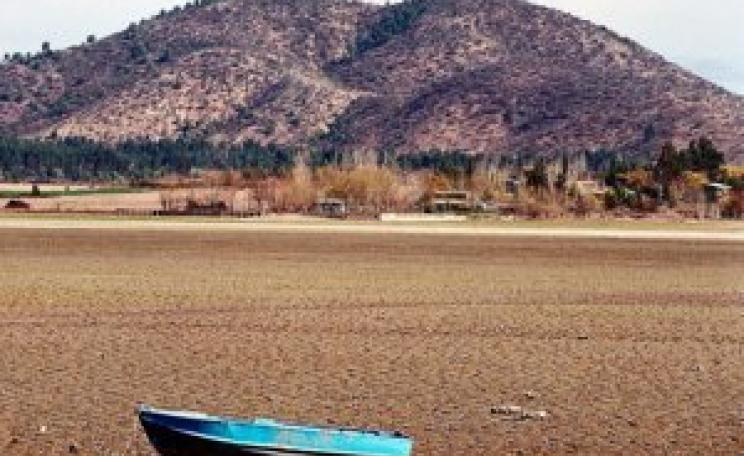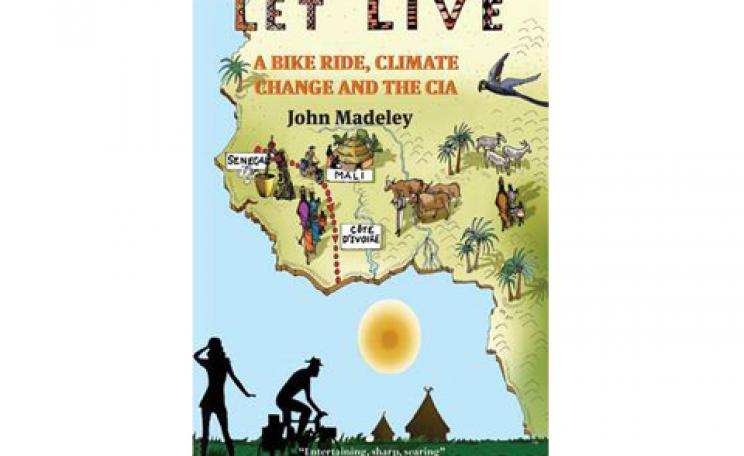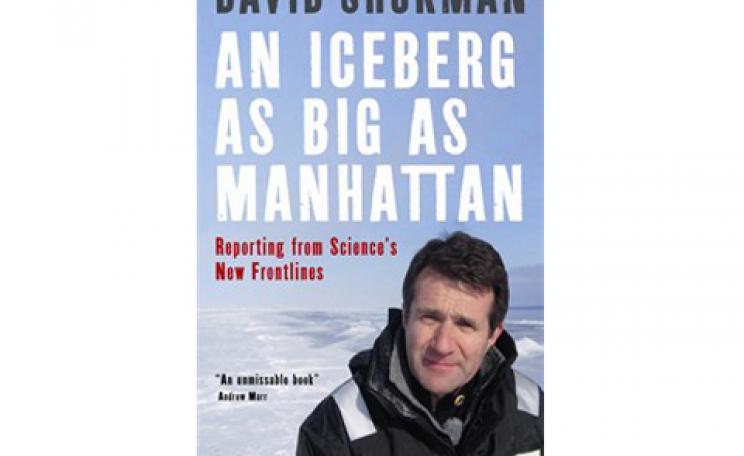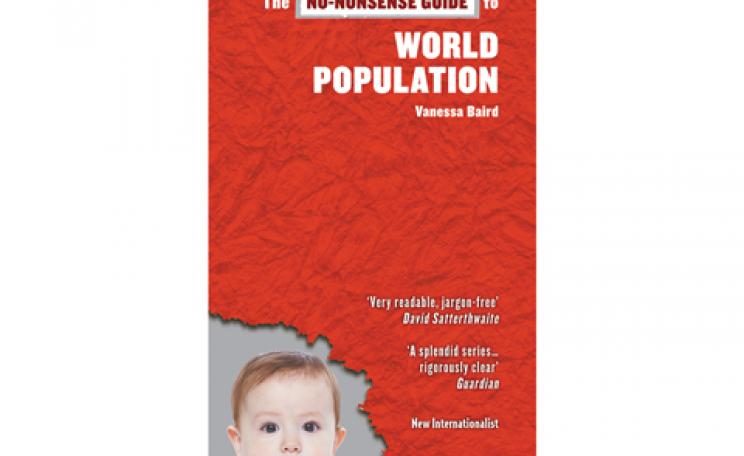It’s not yet summer and already the prospect of drought is on the horizon. It’s only when things get bad and our vulnerability is highlighted - when it is really too late - that concern begins to increase. And issues with water aren’t just a local problem. Far greater ones are faced by communities across the world. So how did we come to be in such a dire situation with respect to water resources, and just how bad are things? To an extent, that’s what Water Matters seeks to address: ‘One-sixth of the world’s population,’ writes Lohan, ‘nearly a billion people, don’t have a reliable source of clean drinking water to meet their minimal daily requirements of 13 gallons a day - literally the same amount we flush down the drain in two trips to the loo. By 2025, the number of people without access to drinkable water is likely to reach three billion.’
Water Matters is a collection of essays from a wide range of contributors from diverse backgrounds, from writers and activists, to artists and photographers. As a result, each brings very different ideas to the table. Some examine various communities across the world, telling the stories of real people who have suffered at the hands of corporations or the elements. These are personal reflections, dear to the heart of each writer, and there are some striking and thoughtful highlights. Wenonah Hauter gave a fascinating insight into the impact of industrial agriculture: ‘I searched in vain for a glimpse of the Miyun reservoir that once provided drinking water for Beijing's 17 million residents. Instead of lapping waves, there was an ocean of corn. The water was gone. This sight may become more common as water-intensive agriculture practices collide with water scarcity. Agriculture is the single largest user of water worldwide, dwarfing everything else.’ Jeff Conant gives a case study of water issues in Detroit and examines the failure of both public and private bodies to sustainably manage the supply for the local residents – 47,000 people have had their water services shut off in the last decade alone. Maude Barlow’s essay on the global water justice movement, and the quest for water to become a basic human right, demonstrates how successful groups can be in helping out the needy.
But not every part of Water Matters is as successful. The book is an anthology and some contributions are weaker than others, but ultimately those more meandering efforts don’t detract from the whole, which amounts to an impressive amount of well-researched information covering many water-related subjects - from water pollution and intensive land use, to access to drinking and sanitation. Water Matters is more than just a collection of essays. Scattered throughout the various accounts are a multitude of infographics, charts, maps, art, and a helpful smattering of guides. Each of these usher in an even more striking collection of facts to contrast with some of the longer, more chatty sections of text. From the brief mention of ‘hot spots’ such as fracking in Delaware (though, admittedly, to anyone who has seen the film Gasland, this really ought to have been more significant) to the horrific oil pollution affecting communities in Nigeri, to a detailed diagramme covering which parts of the world have access to safe water, these nuggets of information are designed to stand-out - to highlight the sheer variety and scope of water issues found around the world. The book is splendidly presented and designed, with wonderful typography and layout, which helps break up the flow of the book. Add to that mix some incredible contributions from highly skilled photographers, and Water Matters suddenly steps away from academia and becomes something much more accessible.
That said, for me this collection never quite came together as well as it could have. The contributions were disparate; there never seemed to be one theme that pulled the reader along. Worse, aside from a buried-away list on how we can each conserve water, there was no real section on what consumers and communities can do next. A book dedicated to environmental water pollution would give a reader a clear idea of the impact of industry and agriculture on our water supply; a book on the plight of communities would see a more structured set of conclusions about how to get poorer communities greater access to clean water; but with there are so many broad ideas on display, juxtaposing in-depth political discussions alongside fairly generic tips on water conservation, Water Matters never managed to truly inspire. It claims to be a call-to-action, but that feeling never quite came about: perhaps it needed to be stated more even clearly. Couldn’t there have been more detailed guide on how to develop activism in our own communities, or even tips on how to set up a political network?
Also, it’s worth pointing out just how much this was human-centric book - there was hardly any discussion about precious ecosystems and how aquatic life is affected. Even given the human-centric approach, surely the destruction of sea or river species affects us too, and is worthy of a more thorough investigation? It’s a bit disingenuous to lay the blame on the book itself, because the subject is complex and crosses a range of disciplines. Water Matters does what it intends to do so for the most part, and shows us just how precious water is to our own species along with revealing some of the splendid cases of activism that have taken place across the world, and demonstrating how complex the situation can be for numerous regions - all of this with an eye for artistic detail. As an introduction to the subject, it is perfect, though with a bit more thoroughness it could have fully delivered on its promise to be a truly inspiring call to action.
Water Matters: Why We Need to Act Now to Save Our Most Critical Resource edited by Tara Lohan (£13.99, AlterNet Books) is available from Amazon
Mark Newton has a degree in Environmental Science and is a genre novelist for Pan Macmillan. He blogs at markcnewton.com, or you can find him on Twitter at twitter.com/MarkCN
| READ MORE... | |
 |
REVIEW Arctic Sanctuary: Images of the Arctic National Wildlife Refuge An evocative combination of stunning photography and beautiful prose drives home the natural wonder of the Arctic in Jeff Jones and Laurie Hoyle’s wonderful book |
 |
REVIEW Fast Forward: Ethics and Politics in the Age of Global Warming Their grasp of science can’t be faulted but William Antholis and Strobe Talbott need to offer solutions too, says Mark Newton |
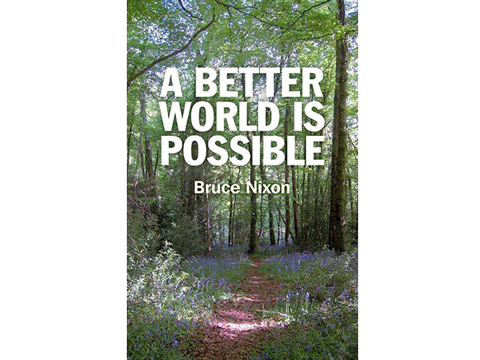 |
REVIEW A Better World is Possible Bruce Nixon’s call to arms examines the perils of the global economic system, and challenges us to think sustainably, writes Bethany Hubbard |
 |
REVIEW Counterpower: Making Change Happen Can political movements past provide lessons for future protest? According to Tim Gee’s Counterpower they most definitely can - and the result, says Mark Newton, is truly inspiring |
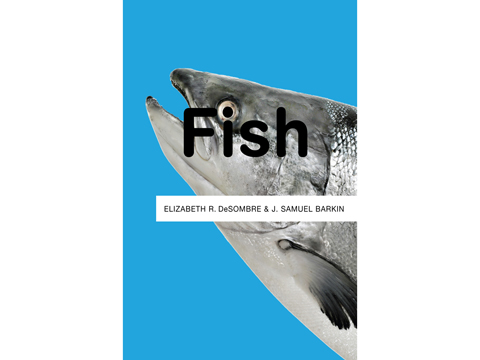 |
REVIEW Book review: Fish Elizabeth DeSombre and J. Samuel Barkin’s readable prose makes unpicking the complex politics and economics behind the fishing industry look as easy as shooting fish in a barrel |



